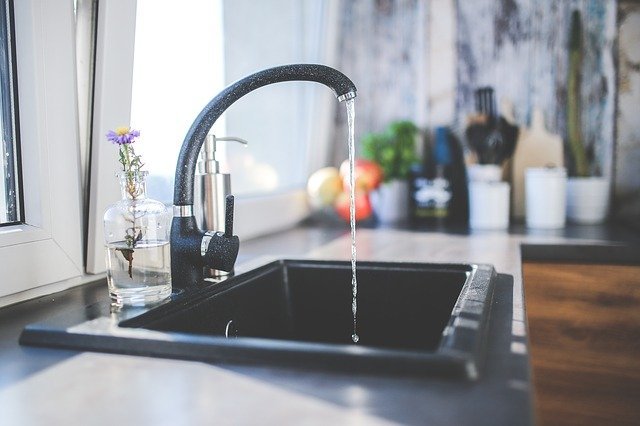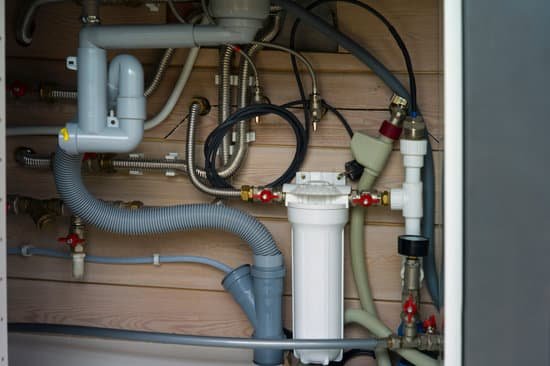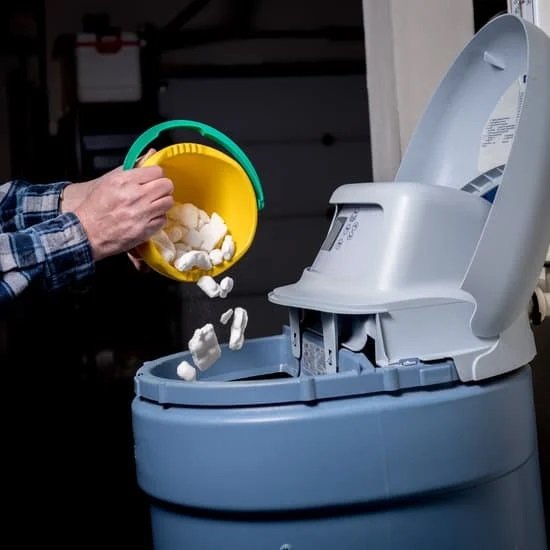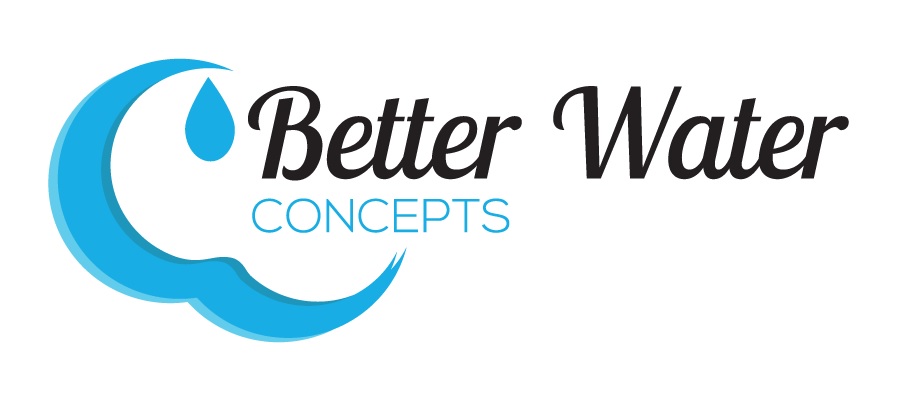Activated Carbon Filter, Chemical Removal, Home Water Treatment
The Best Water Treatment System for Your Home
We're an affiliate
We hope you love the products we recommend! Just so you know, we may collect a share of sales or other compensation from the links on this page. Thank you if you use our links, we really appreciate it!
Many people don’t know that the water they drink from their faucet is not necessarily safe. Filtration systems are a must and it’s important that you have the right one for your home.
The best water treatment system for your home is the one that meets your needs and budget. The type of filter you choose will depend on many factors, including the contaminants in your tap water, how much money you want to spend up front and what kind of maintenance it requires.
Things to Consider When Selecting a Home Water Treatment System
The first thing to look for in a system is whether it removes all the undesirable contaminants in your water. A good filtration system will remove chlorine taste and odor and other impurities associated with drinking tap water such as lead, fluoride, copper, PFAs and PFOAs.
The second thing you need to consider is cost.
If you’re on a tight budget, then you’re probably better off with a pitcher-style filter. These systems range in price from about $20 to about $50. If you are looking for a whole house option, the cost can be from several hundred to over a thousand dollars.
The third thing to keep in mind is installation.
 |  |  |
Some systems are installed in the countertop, under the sink or the basement or utility room.
Do you have the room to install the unit?
For whole house systems and water softeners, the area needed is much larger than an under the sink option for example. Units designed for the whole house are usually installed near the incoming water supply pipe.
Do you have the ability to install the treatment system?
If you lack the skills and tools, you may need to hire a plumber to install the water treatment system.
Do you own the home or do you rent?
If you own the home, you are free to make any decision that suits your needs. However, if you are renting, you will need to contact the landlord before changing the home’s plumbing. As a renter, your choices will be limited.
The fourth thing to consider is maintenance.
All water treatment systems require maintenance. Some need the filters changed every three to six months. Some can go for years with no maintenance.
It is extremely important to maintain the water treatment system as required by the manufacturer. If you don’t contaminants can build up in the filter and clog it.
The last thing to look for in a system is ease of use.
If you have to work hard to get clean drinking water, then it probably isn’t the best product for you.
Examples of Home Water Treatment Systems
- Water Filter Pitcher
- Faucet Water Filter
- Under Sink Filter
- Water Distiller
- Reverse Osmosis Filter
- Salt Based Water Softener
- Salt Free Water Conditioner
- Whole House Filter
Whichever system you choose, make sure it meets NSF standards for chemical and biological contaminants.
| NSF 42 – For removal of chlorine and taste and odor. It makes the water more pleasant to drink. |
| NFS 53 – For removal of contaminants that can create health issues. |
| NFS 44 – This standard applies to salt and potassium based water softeners |
| NSF 55 – Covers treatment systems that use ultraviolet light to inactivate or kill bacteria, viruses and cysts. |
| NSF 58 – This standard applies to reverse osmosis systems. |
| NSF 62 – For distillation systems. |
| NSF 177 – For shower filters that attach to the pipe just before the shower head, for reduction of free chlorine. |
| NFS 401 – For emerging contaminants in drinking water. These contaminants include PFAs, PFOAs, pharmaceuticals, etc. |
Water is a great resource that too many people take for granted, but by choosing the right system for your home you will enjoy one of the most healthful and satisfying beverages on earth.
If you want to stay healthy, water that’s free from harmful chemicals and pathogens is a must. Take the time to research what system is right for you.
Water Filter Pitcher
For a cost effective and simple way to purify your water, try using a pitcher with a built-in filter. You just fill the pitcher straight from the tap. These are easy to use and the replacement filters are relatively cheap as well.
This is an affordable option for those who don’t need purified water all the time so a simple pitcher is all they need.
A water filter pitcher is ideal for renters. There is no installation required. When you move, you take it with you.
All water filter pitchers have an activated carbon filter which removes most sediment, chlorine, and taste and odors.
Faucet Water Filter
If you don’t use a lot of purified water, but would like to purify your tap or faucet water, try using a filter at the spout. This way, every time you turn on the tap to fill something up with water, it gets filtered. Make sure that the one you choose has an indicator that shows when it needs replacement.
Like the water filter pitcher, faucet filters use an activated carbon filter that removes sediment and most chlorine and taste.
Under Sink Water Filter
If you are looking for a permanent solution to your water problem, an under the sink water filter is your best bet. This is one of the most effective ways to purify and clean up your tap water.
These work by filtering out all contaminants from the water before it comes out through the tap.
There are many types of water filters. Which one you choose depends on what you’re trying to remove from the water. There is a large variation in price depending on which type of filter you select.
Most water filters under the sink use an activated carbon filter that removes sediment, most chlorine and taste and odors. Since they are larger, under sink water filters don’t need to be changed as often.
Water Distiller
A water distiller uses boiling and condensing to purify your tap water. It will remove most everything from your water. This is one of the most effective ways to purify your water, but this method costs more.
A water distiller will remove heavy metals, chemicals and other contaminants from your tap water. It leaves you with pure distilled water for drinking or using in cooking and for cleaning around the house.
Although these are not as convenient as other types of filtering systems, they will do a great job at purifying your drinking water.
Water distillation devices range from small countertop units to standalone appliances.
Some distillers require you to fill them manually. Others need to be connected to the household plumbing.
Salt-Based Water Softener
A water softener has many benefits. By removing calcium and magnesium from the water:
- No build up of scale in appliances and plumbing fixtures.
- Lower consumption of soap for laundry and bathing
- Some have reported feeling cleaner after showering in soft water
- Others have reported having healthier hair.
Salt-based water softeners use salt pellets or tablets to reduce the amount of dissolved minerals in your water. Special sand in the softener is “charged” with sodium from the salt. As the water passes through, the calcium and magnesium “stick” to the sand and the sodium is knocked loose. This process is known as ion exchange.
Once the sodium is all used up, the softener goes through a regeneration cycle to “recharge” the sand.
Installation of a salt base water softener can be a little tricky. If you don’t have any plumbing skill, you might be better off to hire a plumber.
Salt Free Water Conditioner
Salt free water conditioners are a great alternative to traditional salt-based water softeners. Some states and cities have banned salt based water softeners.
They don’t actually “soften” the water. They alter the calcium and magnesium so they won’t stick to pipes and appliances. You don’t get the same benefits from a salt free water conditioner as you would a salt based water softener.
Installation of a salt free water conditioner is like a salt based water softener. A plumber may be required.
Reverse Osmosis Water Filters
A reverse osmosis filter is a highly effective way of removing nearly all contaminants from your water, but it is also very expensive. The main reason for this is that the process it uses to purify your water requires a lot of power.
They work by filtering the water and then forcing it through a membrane. This membrane takes out almost all contaminants as the pressure is quite high which is why they very expensive to run.
But if you need purified water without all the contaminants that might be in your tap water, then this is the way to go.
Whole House Filter Systems
Similar to the under sink water filters, whole house filter systems will also reduce all the unwanted contaminants that your tap water contains. They are installed between your main water supply line and the points where you get your drinking water from. This includes taps, dispensers, ice makers and appliances like your washing machine or dishwasher.
Note: If possible, avoid connecting a whole house system or water softener to an outside water faucet.
The importance of maintaining a water treatment system
It’s important to clean and maintain your home water treatment system regularly because if you don’t, it may malfunction. This could cause damage to your pipes and appliances which will then cost you money instead of saving you money.
It’s also important to keep up with these checks in order to ensure that the filters are working properly at all times. For example, if you don’t change your carbon filters often enough and they become clogged, this could mean that more contaminants are getting through than you think.
The Best Water Treatment System For Your Home
The best water treatment system for your home is the one that meets your needs and budget. The type of filter you choose will depend on several factors, including the contaminants in your tap water, how much money you want to spend up front and what kind of maintenance it requires.
There are lots of options out there so make sure you do some research before committing to anything!

